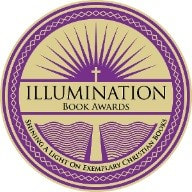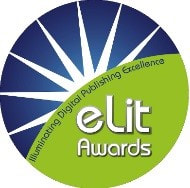Writers must be brave. A writer must put herself out there and expose herself emotionally. Even fiction writing requires a writer to dig deep and expose her innermost thoughts to the public. Writers need to be ruthless and take the story where it needs to go, putting fears, worries, inhibitions, and biases on standby.
If you are writing something based on aspects of your personal life – say an honest, first-person account of an extraordinary event – this holds true on a deeper level. Those tapping their own lives for inspiration are obliged to give up the most private and difficult details of every situation to benefit the story. It is often the most raw and demanding details that readers enjoy most.
So how do great writers strike the balance of injecting enough self to suitably excite the reader without whipping up mundane and trite sludge, effectively destroying a work through self-indulgence? It comes down to which parts of ourselves we are inserting and why. Some details are core to the genius of a work, others should never see the light of day. To leave any of these flagrant signs of the self behind in a final draft is like a surgeon who sews up a bandage inside the patient’s belly. It serves no one.
There are many ways unwanted parts of us get stuck in our writing, and here are five ways to avoid it negatively affecting your work.
Remove your notes
As we write, we move from trying to understand our subject to expressing it for others. Along the way, it is common to write in short-hand, to deposit mental notes to ourselves before we write the sentences intended for readers. We start by building scaffolding, designed to serve us and eventually be removed. It is, by definition, temporary. Left in place, even vestiges of this skeleton make a manuscript appear unfinished, at best. At worst, it’s like a building that has been restored but remains ensconced : you only get hints of the beauty underneath.
Remember, your vacation photos are for you
We all know the stereotype of the overenthusiastic photo-snap, boring friends and family to death with the 1,000-slide vacation presentation. What is exciting to you, because you were there and it is your life experience, may be the perfect sleeping elixir to someone else.
Writers risk a similar fate if they overestimate the importance of their personal experiences. Is your story truly gripping because it offers insight into a core aspect of the human condition, or it is just of raging interest to you because of your particular circumstances, beliefs, or interests when it happened?
This is a hard question to answer, and it will rule out many potential ideas. If an idea passes our own filter, it then rests with others to determine if it passes the “vacation photo” test. Rare vacation photos are truly exceptional. We love saying to our vacationers, “That one is so good it could be a postcard!” and really mean it. This is the reaction you need from your readers. Apply the same “Is it too me?” filter to each chapter, section, paragraph, sentence, and word as you move towards the finish line. Shards of left-over self, necessary for preparation and cooking, are critical to remove before eating, as they drastically dilute the overall flavor.
Judge the story, not the truth
If you are writing fiction based on experience, you must know when to stick with the truth and when to let loose the creative juices and pump up the fiction. Sometimes truth overshadows the potential for a better story in the translation of reality-inspired events. If the true order of events occurred over a few months, but would be ten times more extraordinary and compelling for the reader if they occurred in a single day, make the retrofit. Do it with gusto and glee. Stretch.
We need to draw inspiration from real life where it helps and drop it when it hinders. Test and retest the logic of the story. See where you can raise the stakes. See where you can accelerate the pace. Dreams never occur in real time. They are snapshots of action over longer periods. Good books are too. Take the time and make the effort to make your story fiction.
See the forest for all the trees
Even if 100 percent fiction, writers are often so close to their work they fail to see the forest for the trees. In this case, self is restricting the scope and breadth of the work. This is where working with a writers’ group, getting feedback from willing readers, or turning to a professional editor will pay off.
Sometimes such narrowness is a critical and legitimate phase. All authors have to start somewhere. In an early draft, a writer might be so busy building the description of one side of an intersection they forget the other sides. This is just part of getting to the finish line. The sin is leaving such gaps for the reader to fall into. Such oversights are also evidence of too much self. An author needs to be able to look at the story the way readers will. Readers aren’t mind readers: they can only work with what is on the page.
Acknowledge the dual roles of self in writing
It is often the role of an editor to remove the unwanted remnants of self from a manuscript. The best authors will take on this challenge themselves and not spare their own feelings by completely removing the unwanted parts of self from their writing.
The paradox is that writing comes from self, and yet sometimes self has to be purged from the final product for readers to find it fulfilling and finished. Such a polished feel is a key part of the reader’s perception of a book being professional and high quality. There are no fingerprints on the mirror showing the artist was there working, just a clear reflection of the world the writer is trying to create.
To Your Success,
MG


 RSS Feed
RSS Feed
